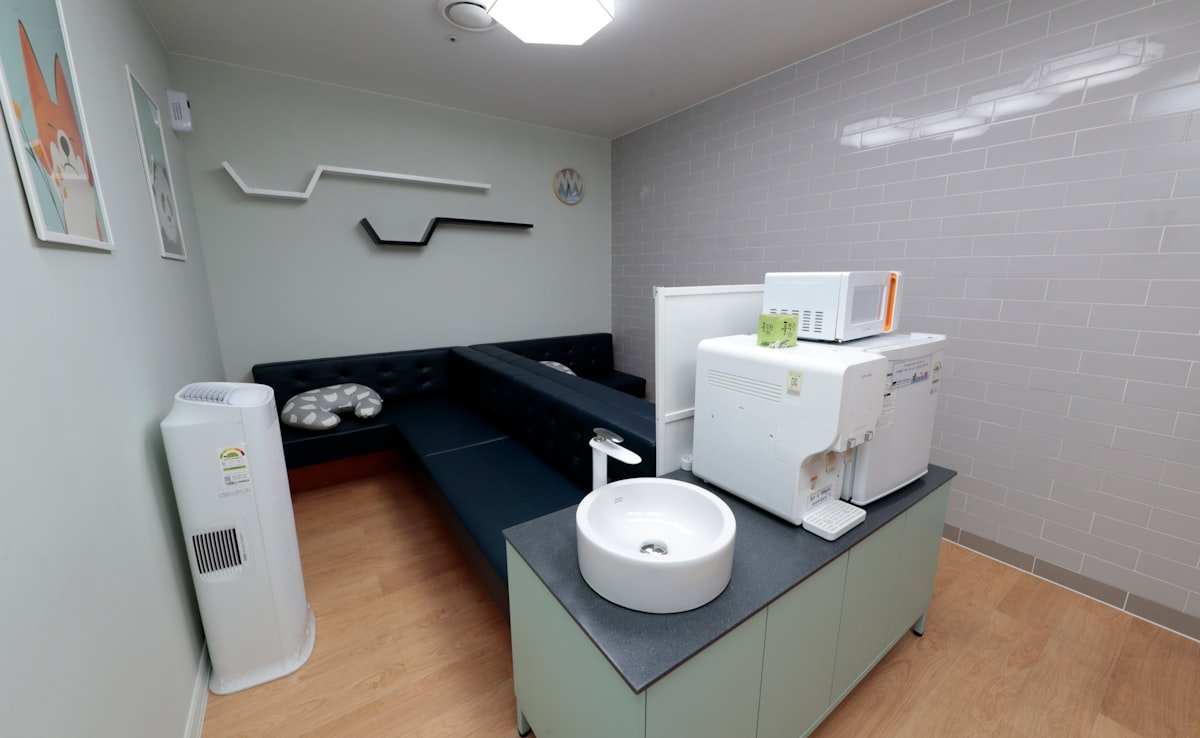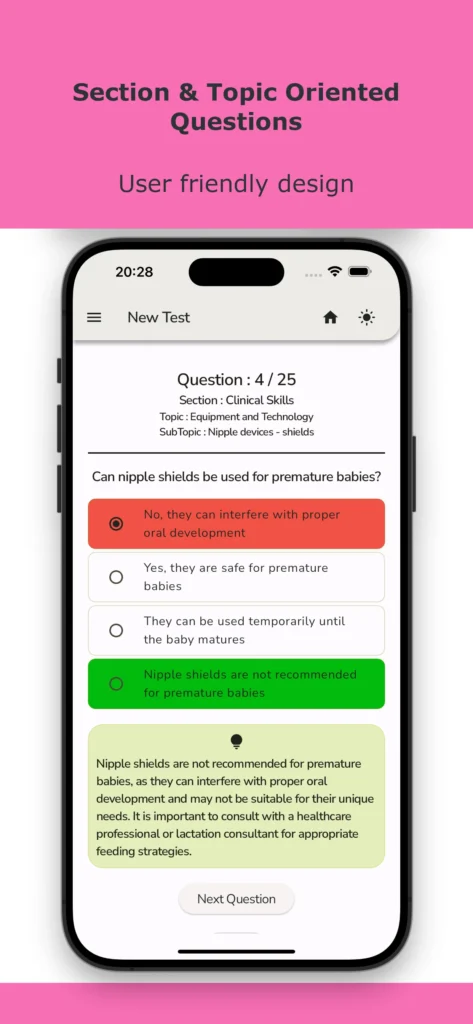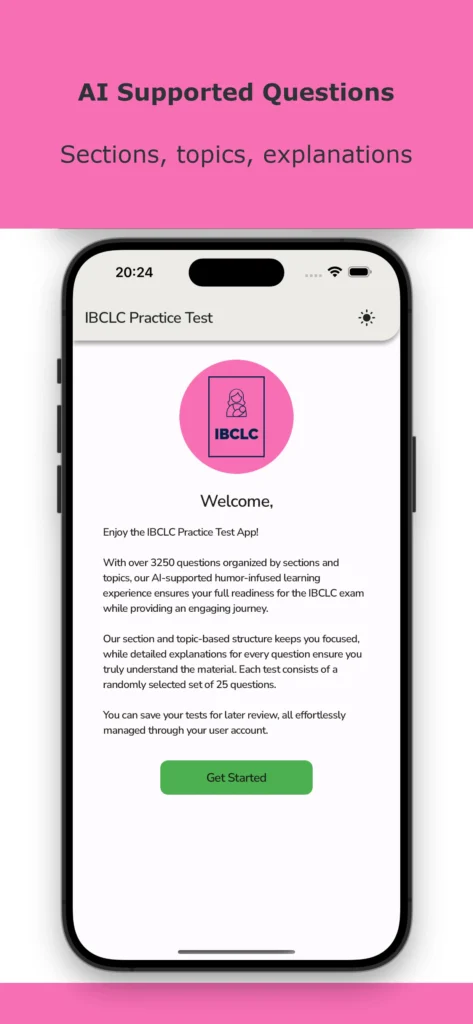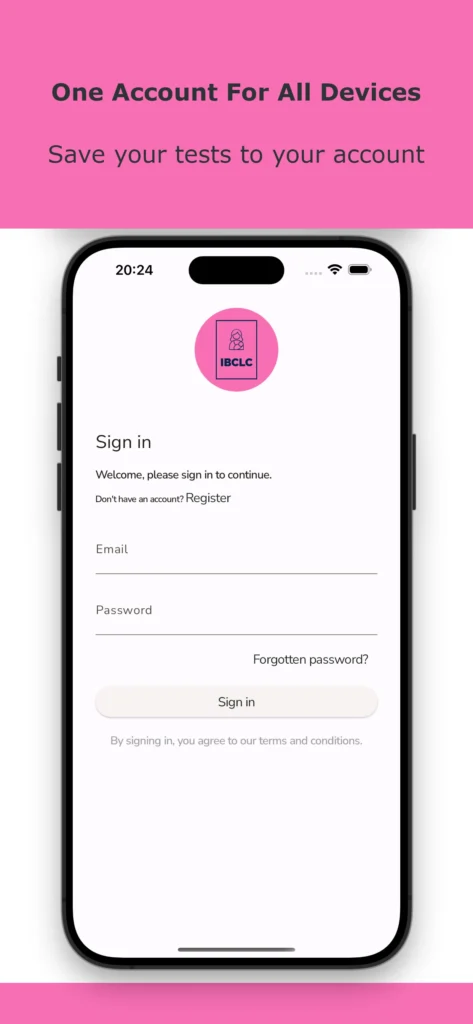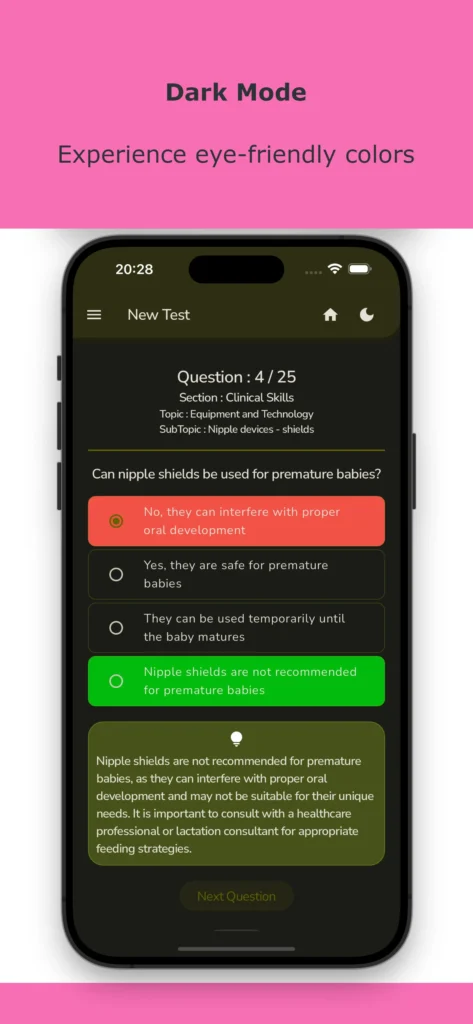Introduction to IBCLC Certification
What is IBCLC Certification?
IBCLC stands for International Board Certified Lactation Consultant. An IBCLC is a healthcare professional who specializes in providing expert lactation support and guidance to breastfeeding families. To become an IBCLC, individuals must complete a rigorous certification process that includes education, clinical experience, and passing a comprehensive exam.
Why is IBCLC Certification Important?
IBCLC certification is important because it ensures that lactation consultants have the necessary knowledge and skills to provide evidence-based care to breastfeeding families. Breastfeeding is a complex process, and having a qualified professional to guide and support families can greatly improve breastfeeding outcomes.
How to Get IBCLC Certification
If you’re interested in becoming an IBCLC, here is a step-by-step guide to help you navigate the certification process:
- Educational Requirements: To be eligible for IBCLC certification, you must meet the educational requirements set by the International Board of Lactation Consultant Examiners (IBLCE). This typically includes completing specific coursework in lactation and breastfeeding.
- Clinical Experience: In addition to education, you must also gain clinical experience in providing lactation support. This can be done through supervised clinical practice or by working in a healthcare setting that provides breastfeeding support.
- Exam Preparation: Once you have met the educational and clinical requirements, it’s time to prepare for the IBCLC exam. This exam is comprehensive and covers a wide range of topics related to lactation and breastfeeding. There are various study resources available to help you prepare, including textbooks, online courses, and practice exams.
- IBCLC Exam: The final step in the certification process is taking the IBCLC exam. This exam is administered by the IBLCE and assesses your knowledge and skills in lactation consulting. It is a computer-based exam that consists of multiple-choice questions.
- Maintaining Certification: Once you have successfully passed the IBCLC exam, you will be awarded the IBCLC certification. However, it’s important to note that IBCLC certification is not a one-time achievement. To maintain your certification, you must participate in continuing education activities and recertify every five years.
Conclusion
IBCLC certification is a valuable credential for healthcare professionals who are passionate about supporting breastfeeding families. By following the steps outlined in this guide, you can work towards becoming an IBCLC and making a positive impact on breastfeeding outcomes.
Eligibility Criteria for IBCLC Certification
Understanding the Eligibility Criteria for IBCLC Certification
If you’re passionate about helping mothers and babies with breastfeeding, becoming an International Board Certified Lactation Consultant (IBCLC) can be a rewarding career choice. To obtain the IBCLC certification, you need to meet certain eligibility criteria. In this section, we will discuss the requirements and steps involved in obtaining your IBCLC certification.
Educational Background
The first step towards becoming an IBCLC is to ensure you have the necessary educational background. You must have completed a minimum of 90 hours of lactation-specific education. This education should cover various aspects of lactation, including anatomy and physiology of the breast, infant feeding practices, and common breastfeeding challenges.
Clinical Experience
In addition to the educational requirements, you must also gain clinical experience in lactation support. This involves providing direct breastfeeding support to mothers and babies under the supervision of an experienced IBCLC or other healthcare professionals. You must complete a minimum of 1,000 hours of supervised clinical practice, which should include both prenatal and postnatal support.
Health Sciences Education
Another important requirement for IBCLC certification is completing health sciences education. This can be in the form of college-level courses in health sciences, such as anatomy, physiology, nutrition, or psychology. The number of required hours may vary depending on your educational background, so it’s important to check the specific requirements set by the International Board of Lactation Consultant Examiners (IBLCE).
Exam Eligibility
Once you have met the educational and clinical experience requirements, you can apply for the IBCLC exam. The exam is administered by the IBLCE and is designed to assess your knowledge and skills in lactation support. To be eligible for the exam, you must have completed all the required education and clinical practice hours within the past five years.
Continuing Education
After obtaining your IBCLC certification, it’s important to stay updated with the latest research and developments in lactation support. The IBLCE requires IBCLCs to complete continuing education hours every five years to maintain their certification. This ensures that IBCLCs are equipped with the most current knowledge and skills to provide effective support to breastfeeding families.
Conclusion
Obtaining your IBCLC certification requires meeting specific eligibility criteria, including completing lactation-specific education, gaining clinical experience, and fulfilling health sciences education requirements. Once you meet these criteria, you can apply for the IBCLC exam and, upon passing, become a certified lactation consultant. Remember to stay updated with continuing education to maintain your certification and provide the best possible support to breastfeeding families.
Preparing for the IBCLC Certification Examination
Understanding the IBCLC Certification Examination
The IBCLC certification examination is a crucial step towards becoming a certified lactation consultant. It is designed to assess your knowledge, skills, and competencies in lactation management. In order to pass the examination and obtain your IBCLC certification, it is important to prepare thoroughly.
Developing a Study Plan
Creating a study plan is essential to stay organized and focused during your preparation for the IBCLC certification examination. Here are some steps to help you develop an effective study plan:
- Identify your strengths and weaknesses: Start by assessing your knowledge and skills in different areas of lactation management. This will help you prioritize your study topics.
- Set realistic goals: Break down your study plan into manageable chunks and set specific goals for each study session.
- Allocate dedicated study time: Set aside regular study time in your schedule to ensure consistency and avoid last-minute cramming.
- Use a variety of study resources: Utilize textbooks, online courses, practice exams, and other study materials to gain a comprehensive understanding of the exam content.
Reviewing the Exam Content Outline
The IBCLC certification examination is based on a detailed content outline provided by the International Board of Lactation Consultant Examiners (IBLCE). This outline serves as a guide to the topics that will be covered in the exam. It is important to thoroughly review the content outline and ensure that you have a solid understanding of each topic.
Utilizing Practice Exams
Practice exams are a valuable tool for preparing for the IBCLC certification examination. They help you familiarize yourself with the format and style of the actual exam questions. Additionally, practice exams allow you to assess your knowledge and identify areas that require further study. Make sure to review the explanations for the correct answers to deepen your understanding of the concepts.
Seeking Additional Resources
There are numerous resources available to support your preparation for the IBCLC certification examination. Consider joining study groups, attending workshops or conferences, and participating in online forums to connect with other aspiring lactation consultants. These resources can provide valuable insights, tips, and study materials to enhance your preparation.
Staying Motivated and Managing Stress
Preparing for the IBCLC certification examination can be challenging and stressful. It is important to stay motivated and manage stress effectively. Here are some strategies to help you stay on track:
- Set small milestones: Break down your study plan into smaller milestones and celebrate your achievements along the way.
- Take breaks: Allow yourself regular breaks during study sessions to relax and recharge.
- Practice self-care: Prioritize self-care activities such as exercise, healthy eating, and getting enough sleep to maintain your overall well-being.
- Stay positive: Surround yourself with a supportive network of family, friends, and fellow lactation consultants who can provide encouragement and motivation.
By following these steps and dedicating time and effort to your preparation, you can increase your chances of success in the IBCLC certification examination and take a significant step towards becoming a certified lactation consultant.
Choosing the Right Pathway
Understanding the Different Pathways
If you’re interested in becoming an International Board Certified Lactation Consultant (IBCLC), you’ll need to choose the right pathway that suits your qualifications and experience. The IBCLC certification is the highest level of certification in the field of lactation consulting and is recognized globally.
There are three main pathways to becoming an IBCLC:
- Pathway 1: Health Sciences Background
- Pathway 2: Breastfeeding Support Counsellor
- Pathway 3: Health Professional
Let’s take a closer look at each pathway and what it entails:
Pathway 1: Health Sciences Background
If you have a background in health sciences, such as being a nurse, midwife, or doctor, this pathway may be the right choice for you. To qualify for this pathway, you’ll need to meet specific educational requirements, including:
- 90 hours of lactation-specific education
- 5 hours of communication skills training
- 300-1000 hours of clinical experience in lactation consulting
Additionally, you’ll need to pass the IBCLC exam to obtain certification.
Pathway 2: Breastfeeding Support Counsellor
If you have experience as a breastfeeding support counsellor, this pathway may be suitable for you. To qualify for this pathway, you’ll need to meet the following requirements:
- 45 hours of lactation-specific education
- 5 hours of communication skills training
- 500-1000 hours of clinical experience in lactation consulting
Similar to Pathway 1, you’ll also need to pass the IBCLC exam to become certified.
Pathway 3: Health Professional
If you’re a health professional who is not a nurse, midwife, or doctor, this pathway may be the right fit for you. To qualify for this pathway, you’ll need to meet the following requirements:
- 45 hours of lactation-specific education
- 5 hours of communication skills training
- 1000 hours of clinical experience in lactation consulting
Just like the other pathways, passing the IBCLC exam is necessary to obtain certification.
Choosing the Right Pathway for You
When deciding which pathway to pursue, consider your educational background, experience, and career goals. If you’re unsure which pathway is the best fit, it’s recommended to consult with a mentor or experienced IBCLC who can provide guidance.
Remember, becoming an IBCLC requires dedication, hard work, and a commitment to ongoing professional development. By choosing the right pathway, you’ll be on your way to a rewarding career as a lactation consultant.
Completing the Clinical Experience
What is the Clinical Experience?
The clinical experience is a crucial component of the process to obtain IBCLC certification. It provides aspiring lactation consultants with hands-on experience working directly with breastfeeding families. This experience allows candidates to apply their knowledge and skills in a real-world setting, under the supervision of a qualified mentor.
During the clinical experience, candidates have the opportunity to observe and assist with breastfeeding consultations, conduct assessments, develop care plans, and provide support to families. This practical experience is essential for building confidence and competence in the field of lactation consulting.
Requirements for the Clinical Experience
In order to fulfill the clinical experience requirement for IBCLC certification, candidates must meet the following criteria:
- Complete a minimum of 500 hours of supervised clinical practice.
- Work with a minimum of 75 breastfeeding families.
- Obtain supervision from an IBCLC or other qualified healthcare professional.
Finding a Clinical Mentor
One of the first steps in completing the clinical experience is finding a qualified mentor. A mentor is an experienced IBCLC or healthcare professional who will provide guidance, support, and supervision throughout the clinical practice hours.
There are several ways to find a clinical mentor:
- Reach out to local lactation consultants or breastfeeding support organizations to inquire about mentorship opportunities.
- Join professional lactation organizations and networks, such as the International Lactation Consultant Association (ILCA), to connect with experienced IBCLCs who may be willing to serve as mentors.
- Attend breastfeeding conferences, workshops, or seminars where you can network with professionals in the field.
Documenting the Clinical Experience
It is important to keep detailed records of your clinical experience to fulfill the documentation requirements for IBCLC certification. This includes:
- Recording the number of hours spent with each breastfeeding family.
- Documenting the specific activities and skills performed during each consultation.
- Obtaining signed documentation from your clinical mentor verifying your hours and competencies.
Evaluating Your Clinical Experience
Throughout the clinical experience, it is important to reflect on your learning and growth as a lactation consultant. Consider the following questions:
- What new skills or knowledge have you gained?
- How have you improved in your ability to support breastfeeding families?
- What challenges have you encountered, and how have you overcome them?
By evaluating your clinical experience, you can identify areas for further development and ensure that you are meeting the competencies required for IBCLC certification.
Key Takeaways
Key Takeaways
Obtaining IBCLC certification is a crucial step for individuals looking to establish themselves as lactation consultants. Here are the key takeaways from this guide:
- IBCLC certification is the gold standard for lactation consultants, demonstrating expertise and knowledge in the field.
- To become IBCLC certified, you must meet specific educational requirements, complete clinical practice hours, and pass the IBCLC exam.
- Start by obtaining the necessary education, such as a lactation consultant training program or a health-related degree.
- Accumulate clinical practice hours by working with breastfeeding families under the supervision of an IBCLC.
- Once you meet the educational and clinical requirements, you can apply to sit for the IBCLC exam.
- The IBCLC exam is a comprehensive test that assesses your knowledge and skills in lactation consulting.
- Prepare for the exam by studying the IBCLC Detailed Content Outline and utilizing study resources, such as textbooks, online courses, and practice exams.
- After passing the exam, you will need to recertify every five years to maintain your IBCLC certification.
- Recertification involves accumulating continuing education hours and demonstrating ongoing competency in lactation consulting.
- IBCLC certification opens up various career opportunities, including working in hospitals, private practice, public health, and research.
- As an IBCLC, you will play a vital role in supporting breastfeeding families, promoting lactation education, and advocating for breastfeeding-friendly policies.
Remember, the journey to becoming an IBCLC may require dedication, hard work, and ongoing learning, but the rewards are immeasurable. By obtaining IBCLC certification, you will be equipped with the knowledge and skills to make a positive impact on the lives of breastfeeding families.
Conclusion
In conclusion, obtaining IBCLC certification is a rigorous but rewarding process that allows you to become a recognized expert in lactation consulting. By following the step-by-step guide outlined in this post, you can navigate the requirements, gain the necessary experience, and successfully pass the exam to become an IBCLC.
Remember, the journey to becoming an IBCLC requires dedication, commitment, and a passion for helping breastfeeding families. It is a profession that requires continuous learning and staying up-to-date with the latest research and best practices in lactation support.
Once you have obtained your IBCLC certification, you will have the knowledge and skills to provide evidence-based lactation support to families in need. You will be able to make a positive impact on the health and well-being of breastfeeding parents and their babies.
So, if you are passionate about breastfeeding and want to make a difference in the lives of families, consider pursuing IBCLC certification. It is a fulfilling and rewarding career path that allows you to support and empower breastfeeding parents on their journey.
If you have any further questions or need additional guidance on how to get IBCLC certification, feel free to reach out to us. We are here to support you every step of the way!

